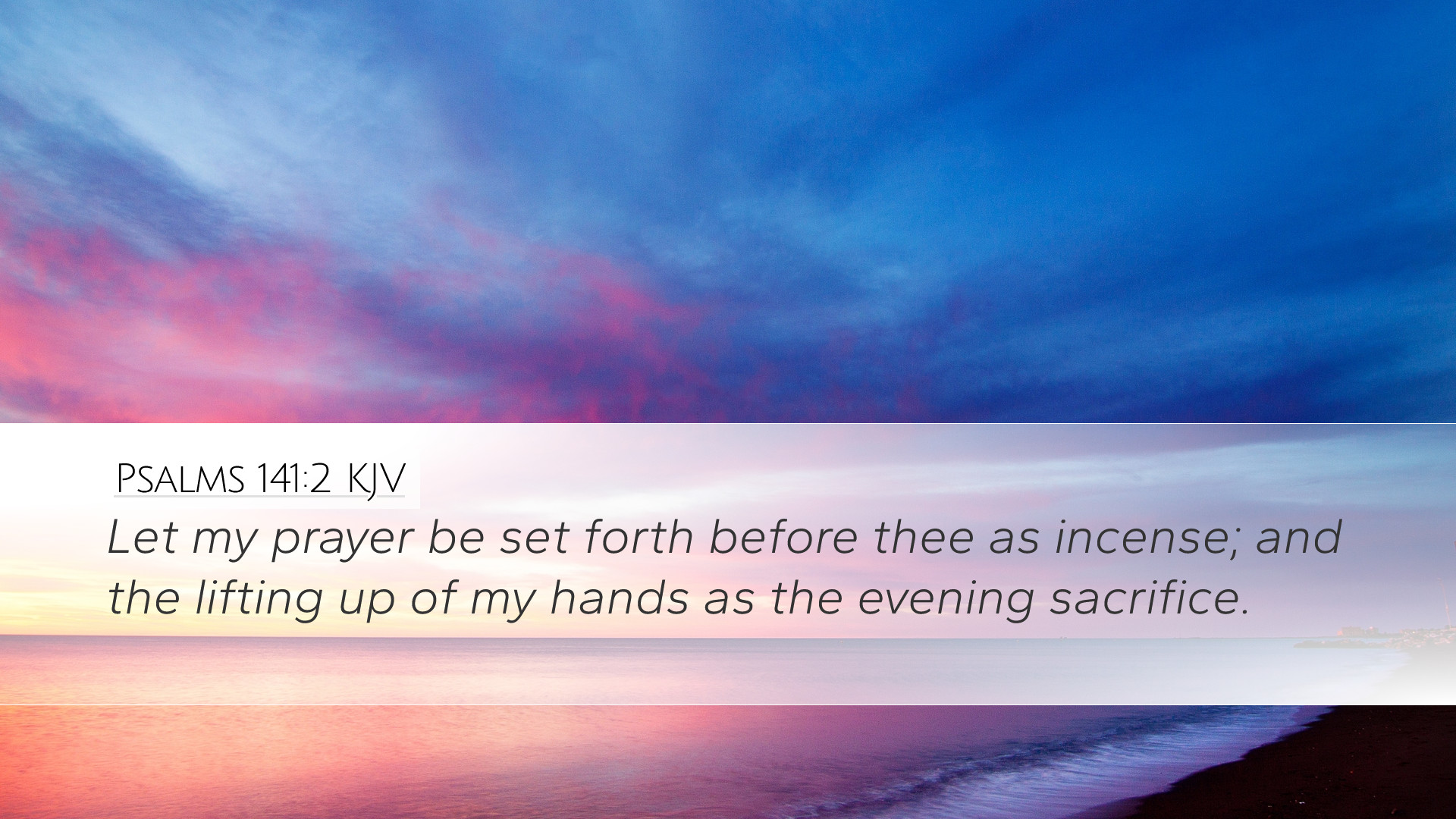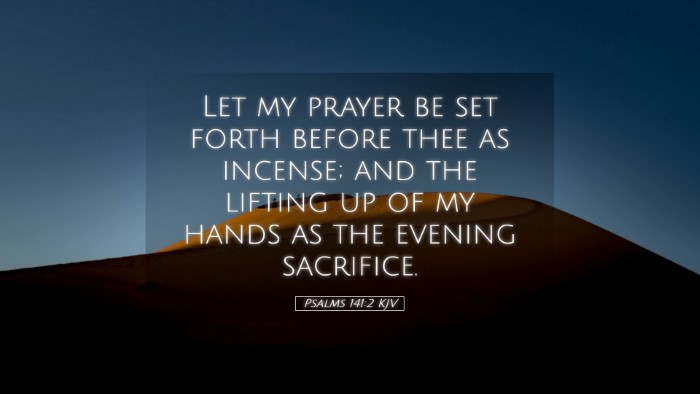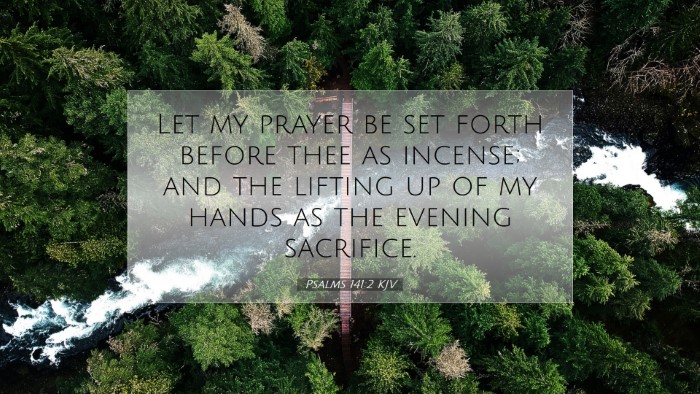Commentary on Psalms 141:2
Psalms 141:2 states: "Let my prayer be counted as incense before you, and the lifting up of my hands as the evening sacrifice!" This verse encapsulates the essence of sincere prayer and worship, drawing correlations between biblical practices and personal piety.
Introduction
This verse aligns the act of prayer with the rich traditions of Old Testament worship, particularly highlighting the significance of incense and sacrifices, which served as vital components of Israelite worship in the temple. The psalmist emphasizes both the intention behind the prayer and the physical expression of worship through lifting hands.
Insights from Matthew Henry
Matthew Henry, in his commentary, emphasizes the metaphorical nature of the psalmist's prayer. He interprets incense as representing the sweetness and acceptability of sincere prayer before God.
- Symbol of Prayer: Henry notes that incense is a symbol of prayer because both ascend to God. Just as incense is pleasing to the senses, so is genuine prayer pleasing to God.
- Evening Sacrifice: He correlates lifting hands with evening sacrifices, suggesting that this posture signifies surrender and dependence on God.
- Connection with Worship: Henry points out the importance of approaching God with a heart full of reverence, highlighting that true worship involves both the heart and physical expressions of faith.
Insights from Albert Barnes
Albert Barnes offers a detailed analysis of the text, focusing on the significance of each element within the verse.
- Prayer as Incense: Barnes expounds on the prayer being "counted as incense", suggesting that this is an invocation for God to view the prayer as worthy and acceptable. He likens it to the act of incense being offered in the Holy Place.
- Posture of Worship: The act of lifting hands, Barnes infers, illustrates both an outward sign of humility and a physical demonstration of the heart's desire to connect with God.
- Evening Transition: He emphasizes the importance of the evening hours in Hebrew tradition, a time of reflection and offering, marking a transition from labor to rest, reminding worshippers of God's provision.
Insights from Adam Clarke
Adam Clarke's commentary sheds light on the cultural and ritualistic aspects of the prayer mentioned in this verse.
- Incense in Worship: Clarke explains that incense was not only a physical offering; it symbolized the prayers of the saints rising to God. He highlights the importance of the right heart in requests made to God.
- Significance of Hands Raised: He details the lifting of hands as a universal expression of supplication and worship, suggesting it represents a deeper yearning for God's presence.
- Sacrifice Symbolism: Clarke ties the lifting of hands to sacrificial practices, indicating that just as sacrifices were offered, the psalmist seeks to offer his prayer in a manner that honors God, akin to the evening sacrifices observed in the temple.
Thematic Insights
This verse encapsulates several important themes relevant to contemporary faith:
- The Nature of Prayer: The psalmist illustrates that prayer should not merely be a ritualistic activity but an intimate connection with God, transforming ordinary speech into a sacred offering.
- Acts of Worship: Lifting hands serves as a continual reminder of our physical and spiritual engagement with God during prayer, suggesting that worship involves both inward and outward expressions.
- Acceptability of Offering: The appeal for God to recognize the prayer as incense reflects the desire for one's supplications to be worthy of divine attention, underscoring the importance of both intention and sincerity in worship.
- The Role of Sacrifice: By inferring connection to the evening sacrifice, the psalmist suggests that believers should bring their daily struggles and praises to God, echoing a continual offering of self.
Application for Pastors and Theologians
This verse encourages pastors and theologians to consider the depth of worship and prayer:
- Encouragement to Lead Sincerely: Leaders should encourage congregations to engage in prayer that is heartfelt and sincere, imitating the biblical models of worship.
- Physical Expressions of Faith: The raising of hands and bodily postures in worship should be considered as theological expressions of dependence and reverence before God.
- Teaching on Incense and Sacrifice: Educating congregants on the historical significance of incense and sacrifices can foster a deeper appreciation of worship practices today.
Conclusion
Psalms 141:2 stands as a powerful reminder for believers of the sacredness of prayer and the importance of intentional worship. Through careful interpretation of public domain commentaries, we glean insights that call us to elevate our understanding of prayer, emphasizing that it should transcend routine and become a fragrant offering acceptable unto God. Such expressions, whether through metaphor or physical postures, resonate through centuries of Christian practice and continue to open paths for deeper communion with the Divine.


